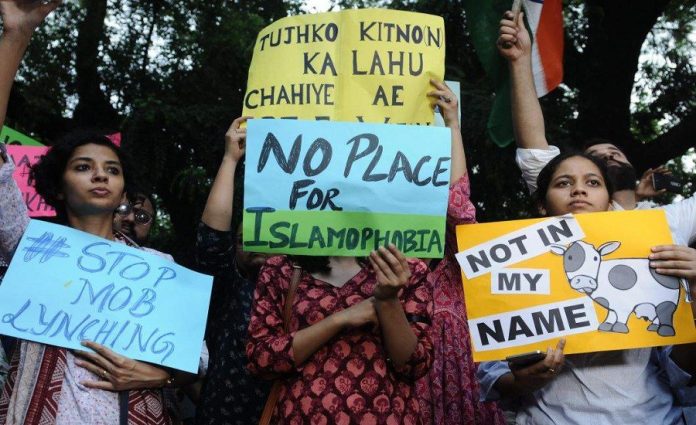India is experiencing a troubling surge in anti-Muslim hatred, driven by longstanding misconceptions that have woven themselves into the fabric of societal beliefs. These misconceptions are fueling violence and discrimination, turning Islamophobia into a normalized part of daily life. False narratives surrounding Muslims are increasingly used to justify hostility and aggression.
In July 2024, several cities across England saw riots sparked by misinformation and rising anti-immigrant sentiments. Muslims were disproportionately targeted in these violent acts, with mosques attacked and immigrant neighborhoods vandalized. These events illustrate how deeply embedded prejudices and falsehoods about Islam continue to incite violence worldwide.
In response to these events, the UK’s All Party Parliamentary Group released a report that critically examined Islamophobia, including the myth that Islam spread by the sword. The report rejected this misconception, highlighting its role in fueling anti-Muslim attitudes. India, too, can learn from this initiative, as similar myths and biases against Islam pervade its society, fanning the flames of communal tension.
One of the most persistent falsehoods in India is the belief that Islam expanded through violence. This distorted narrative is often used to justify hostility toward Muslims by pointing to historical conflicts between Hindu and Muslim rulers. However, the real story of Islam’s growth in India is far more nuanced. It was primarily spread through peaceful means, such as trade and cultural exchanges, long before political conflicts emerged, writes Ram Punyani in his article in The Wire.
Arab traders brought Islam to the Malabar Coast in the 7th century, and Kerala’s Cheraman Jumma Mosque, one of India’s oldest mosques, is a testament to the peaceful introduction of Islam into the region. Additionally, Swami Vivekananda, a highly respected Indian thinker, rejected the idea that Islam was imposed by force. He recognized its appeal to marginalized communities and understood that many conversions were voluntary.
Despite this historical reality, the myth that Muslim rulers forcibly converted Hindus persists and has been used to incite violence. For example, the demolition of Babri Masjid in 1992 was based on the belief that Muslim kings had demolished Hindu temples. This same logic is now being applied to other important sites, including Kashi, Mathura, and the Taj Mahal, deepening the rift between religious communities.
Another major factor contributing to anti-Muslim violence is the controversy surrounding cow protection. False accusations of cow slaughter have led to numerous attacks against Muslims by self-proclaimed cow vigilantes. Since 2014, such incidents have risen sharply, with 51% of all cow-related violence between 2010 and 2017 targeting Muslims, resulting in 86% of the deaths.
Activist Harsh Mander has been working to raise awareness about this issue through his Karwan-e-Mohabbat campaign, which offers support to victims of mob violence. One particularly heartbreaking case involved Aryan Mishra, a Hindu student who was lynched after being mistaken for a Muslim. His mother’s grief-stricken question, “Aren’t Muslims human too?” resonates with the pain of countless other families who have lost loved ones to such senseless violence.
Anti-Muslim discrimination also manifests in less visible but equally damaging ways. In Amroha, a Muslim student was locked in a storeroom by his principal simply for bringing biryani to school, reflecting the deeply entrenched biases that many Muslims face daily.
Hate speech against Muslims has become more commonplace, with little accountability for those responsible. Some political leaders even use such rhetoric to further their careers. In Assam, the Chief Minister regularly uses inflammatory language, referring to Muslims as “Miya Muslims” and accusing them of engaging in a “flood jihad.” Similarly, in Uttar Pradesh, homes belonging to Muslims have been demolished without proper legal proceedings, a practice condemned by legal experts for violating constitutional rights.
To address this growing problem, India must take decisive steps to confront and challenge Islamophobia. The UK’s recent actions in rejecting harmful narratives about Islam offer a blueprint for India to follow. A concerted effort is needed to dismantle the misconceptions that fuel hatred and violence against Muslims.
As Islamophobia continues to rise, it is imperative for Indian society to recognize and challenge the prejudices driving these attacks. Combating anti-Muslim hatred requires a collective effort from the government, civil society, and individuals alike. Only by confronting these misconceptions head-on can India hope to prevent further violence and promote harmony.




